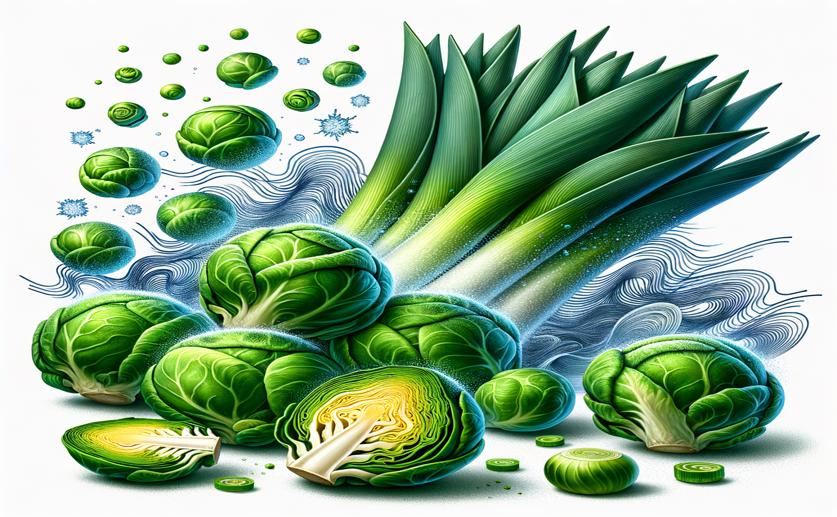
How Pretreatment and Freezing Affect the Aroma of Brussels Sprouts and Leeks
Jim Crocker
16th August, 2024

Image Source: Natural Science News, 2024
Key Findings
- The study by KU Leuven examined how pretreatment and frozen storage affect the aroma and flavor of Brussels sprouts and leek
- Pretreatment, such as blanching, had a more significant impact on the volatile profiles of both vegetables than frozen storage
- For leek, both blanched and raw samples showed notable changes during frozen storage, while Brussels sprouts had a linear decrease in certain volatile markers over time
References
Main Study
1) How do pretreatment and frozen storage impact the volatile profiles of Brussels sprouts and leek?
Published 15th August, 2024
https://doi.org/10.1016/j.foodres.2024.114750
Related Studies
2) The Volatile Profile of Brussels Sprouts (Brassica oleracea Var. gemmifera) as Affected by Pulsed Electric Fields in Comparison to Other Pretreatments, Selected to Steer (Bio)Chemical Reactions.
3) Evolution of Volatile and Phenolic Compounds during Bottle Storage of Merlot Wines Vinified Using Pulsed Electric Fields-Treated Grapes.
4) Application of multivariate data analysis for food quality investigations: An example-based review.



 13th April, 2024 | Jenn Hoskins
13th April, 2024 | Jenn Hoskins